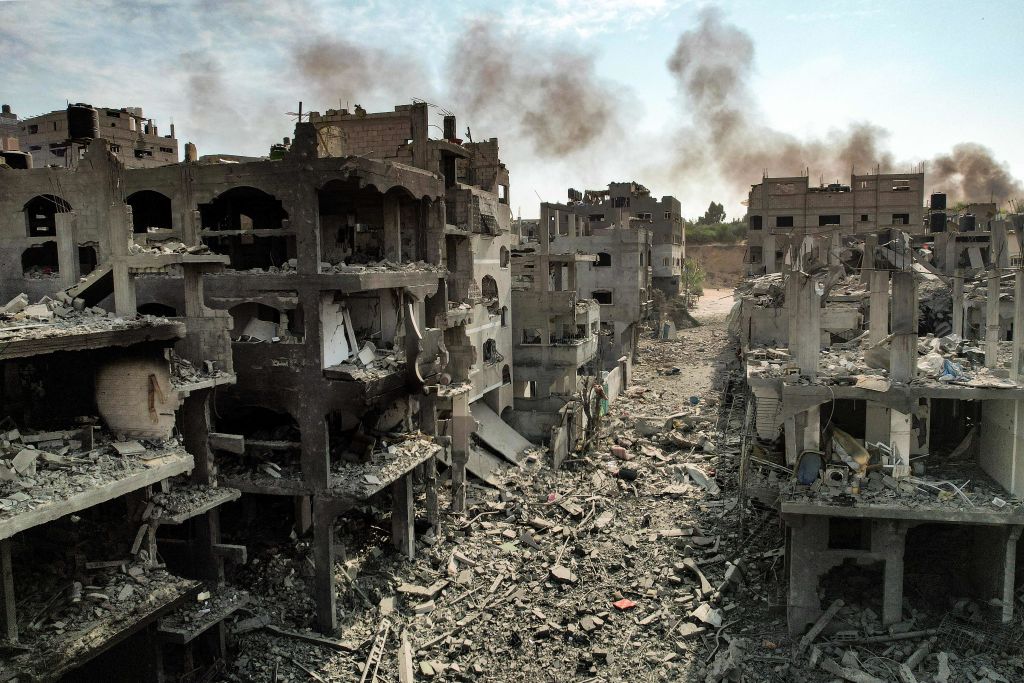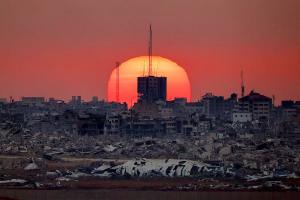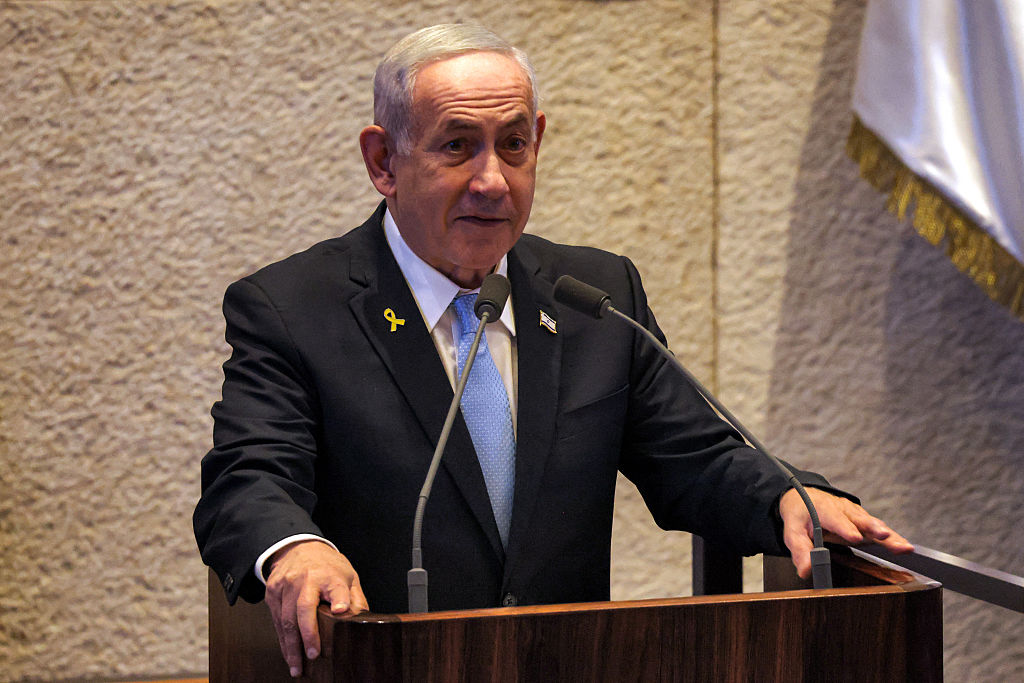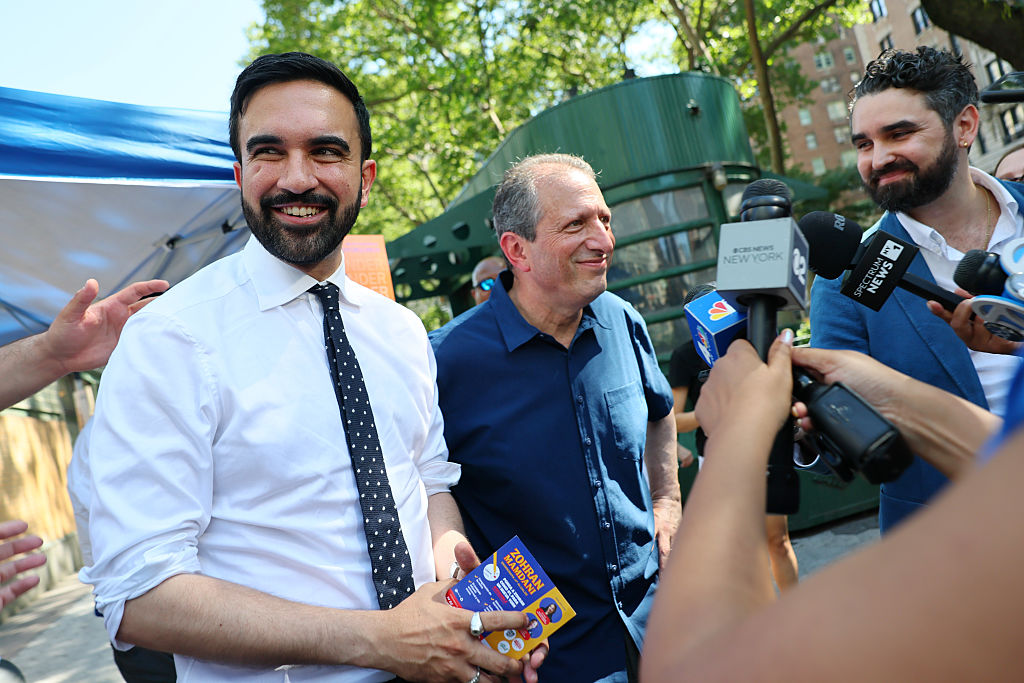When the last shot is fired in the current Israeli-Palestinian conflict and the fog of war eventually lifts, the challenge of who will rebuild Gaza will need to be addressed.
While such a thought may be difficult for some Israelis to stomach, especially those who lost loved ones in the October 7 Hamas atrocity, the “what happens next?” question demands both an answer and a plan.
In his masterful work World Order, the late US statesman and diplomat Henry Kissinger noted that when President Harry S. Truman was asked in 1961 what part of his presidency made him most proud, he said: “That we totally defeated our enemies and then brought them back into the community of nations.” Those enemies, of course, included Nazi Germany and the Empire of Japan, both of which committed an unimaginable number of atrocities and acts of genocide.
President Benjamin Netanyahu’s government also plans to totally defeat Hamas but, crucially, it has yet to decide what will become of Gaza and its population. Many of Netanyahu’s supporters would probably like to see Gaza remain as a smoking ruin, serving as a reminder to those of what happens if you attack Israel.
But the impact of Israel’s unrelenting air bombardment and ground assault may have already delivered that message. This is maybe why, along with the presence of two US aircraft carriers, Hezbollah has thought twice about a full-scale attack — for the time being anyway — in northern Israel.
The levels of devastation within Gaza are clearly huge. Over half of all of Gaza’s housing has reportedly been destroyed, and over 200,000 homes damaged. Dozens of hospitals, hundreds of schools and government buildings have been leveled or seriously damaged, as have agricultural facilities.
The direct impact of the war on the population is probably incalculable. According to the Hamas-run health authority over 18,000 people have been killed and 50,000 civilians have been injured in a region where 80 percent of the population is already dependent on aid.
Many of the wounded may never fully recover. Those with amputated limbs will require new prosthetics, along with months of rehabilitation. The newly paralysed, the blind and the burned will need operations and will have to be taught new skills, while the mentally traumatised will require months, if not years of therapy, if they are to lead even remotely normal lives.
Even before an extensive and lengthy rebuilding program can begin, thousands of unexploded bombs, rockets and artillery shells will have to be carefully removed by a small army of bomb disposal experts.
All of this costs money so who will pay and what will the cost be? The early estimates suggest that the rebuilding of Gaza could take years and may cost as much as $50 billion.
Earlier this week, Israeli media reported that Benjamin Netanyahu told fellow politicians that Saudi Arabia and the United Arab Emirates would be willing to foot the bill. But already it seems that the promise of money would be linked to a two-state solution being guaranteed.
It has also been suggested that the European Union may be willing to stump up some of the cash along with the US. But there appears to be some disquiet among US and EU leaders asking why they should foot the bill for reconstruction if Gaza is only going to be bombed again some time in the future.
There have also been some calls for Israel to pay for the damage but ultimately the issue is not the cost but the politics. No country or group of countries will donate money to the reconstruction of Gaza unless they believe that the Palestinian crisis is going to be permanently resolved and at the moment that looks like a distant dream.
Part of the issue is with the lack of trust between the UN Relief Works Agency for Palestinian Refugees in the Near East, otherwise known as UNRWA, and the Israeli government. Marta Lorenzo, director of the UNRWA Representative Office for Europe, said of the current conflict: “The level of structural damage and destruction is unprecedented. It’s not comparable to any other war in Gaza… So right now, it’s very difficult to know how much will it cost, but it won’t be the responsibility of just one donor.”
UNRWA has spent millions in Gaza building social welfare services, schools and health clinics. It is Gaza’s second-largest employer but has also regularly had to fend off criticism of bias, including accusations that some of its workers were also members of Hamas.
Senior ministers in the Israeli government have said they want to get rid of UNRWA altogether, while moderate politicians in donor countries believe the organisation is essential.
Netanyahu has not yet set out a plan for who would govern Gaza but he has once again ruled out any transfer of power to the Palestinian Authority, a move which may increase Israel’s international isolation and was one of Hamas’s strategic objectives.
Gaza will be a fertile ground for another Islamist terrorist group to grow and mutate if the area is left to fester like an open wound without any useful outside help. Such an outcome will be a threat not just for the region but for western societies as well.
Earlier this week Sir Alex Younger, the former head of the British Secret Intelligence Service, MI6, warned that what was happening in the Middle East had led to “unparalleled scales of radicalization” that “augurs trouble ahead.” Gaza isn’t just Israel’s problem.
This article was originally published on The Spectator’s UK website.


























Leave a Reply